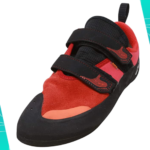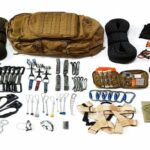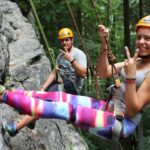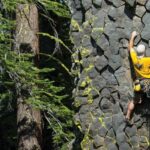Up your game with an online climbing coach: If you’ve been climbing for a few years, then it’s likely that you have (or soon will) reached a plateau in your climbing ability. Answering the question “How can I improve at climbing?” is a difficult one.
Climbing is a relatively new sport, and theories around training are still being developed. It can seem like everyone you talk to has radically different ideas about what works best, making it hard to sort out the good advice from the bad. Furthermore, a training regimen that works for a certain type of climber, say a boulderer climbing V11, will not work for a sport climber projecting 5.13 or even another boulderer climbing V5.
Check this post, Climbing out of depression, here!
So how do you make sense of it all? A few years ago, your only option was to buy a training book and sort through the theories to design your own plan. However, recently, personal coaches for climbing have been using the Internet as a tool to reach a wider audience.

Thanks to the power of the internet, trainers with years of climbing coaching experience will create a plan just for you. Photo by TrainingBeta.
How Important Is To Have A Coach
What’s added benefit of an online training coach? Why not just buy a book? First, many of the online services start with an assessment to determine your strengths and weaknesses. Sure, you may already know that you suck at dynos and slopers are your worst enemy. A seasoned climbing coach may be able to tease out the less obvious deficiencies in your climbing, either by talking with you about past performances, assessing your climbing by video, having you fill out questionnaires, or having you undergo performance testing. This assessment alone is a valuable tool.
If you can dig up a weakness that you didn’t realize was hindering you from sending your project, you’re much more likely to be able to work on it specifically and send it faster. After the initial assessment, they create a personalized plan for training that will help you to meet your goals. You can communicate with them throughout the process to give and get feedback on how your training is progressing.
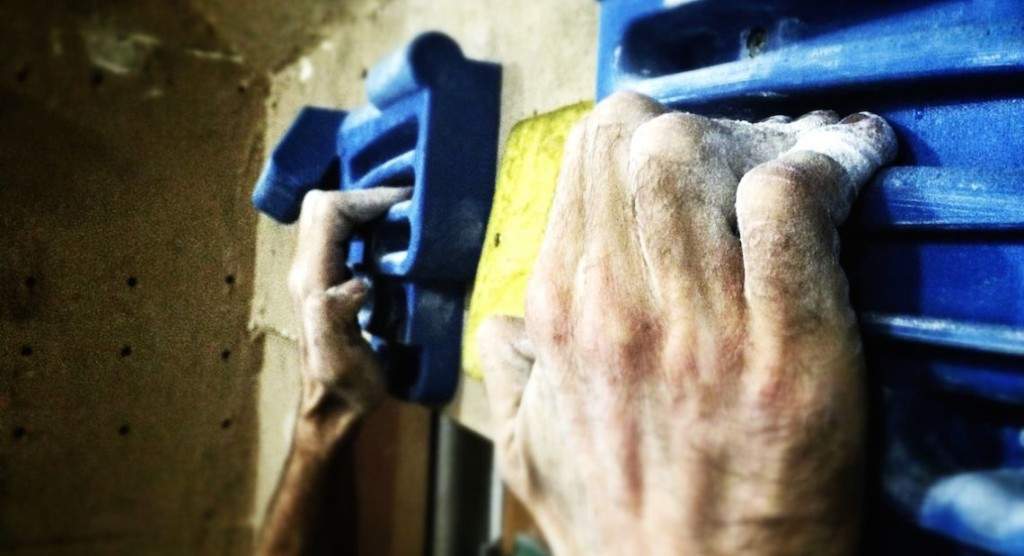
Got weak fingers? Your coach can help with that. Photo by Evening Sends.
The List Of Benefits Of Online Climbing Coach
I recently started using an online coach, and have really loved it so far. I think online coaching can be a great tool if used correctly. So, to help you get the most out of it, I made a quick list of the things I’ve found most important to consider when starting a training regimen.
- Be honest with yourself AND your trainer about how much time you can commit. Pledging to double your normal climbing hours is a surefire way to fail in your training plans. If you haven’t been able to make it to the gym 4 times a week in the past, be really honest with yourself as to whether you’ll be able to now. Unless you recently quit your job or finished school, it’s unlikely that you’ll magically find several more hours a week for training.
But rest assured that even if you’re only able to keep up with your 3 days a week climbing schedule, doing more focused exercises and specific training should still help you get stronger. Promising yourself that you’ll spend significantly more time training and then not being able to live up to your promise is an easy way to make you feel like you’re failing at your training plan.
- Enlist a training partner. It’s always more motivating to work out with a friend who will cheer you on. Convince a friend to sign up with you and hold each other accountable for getting your week’s worth of training in. Your plans might be slightly different, especially if you’re climbing at different levels or training for different goals. But, even if you’re not doing all the same exercises, you can still push each other to work harder and maintain focus, especially after a month or two or when the psyche starts to wane.
- Base your training plan upon specific and realistic goals. Simply telling your trainer that you want to “get better at climbing” doesn’t give them much guidance for creating a personalized plan. If you instead told them something like “I want to climb Elephant Man, a 5.13a roof climb with about 40 moves on stalactites”, your trainer will have a much better idea of which exercises will help you improve the most for the desired route. In addition, having a specific goal gives you a tangible project to work toward and the ability to later assess whether the plan helped you to improve or not.
- Plan a trip at the end of your training season. Whether you make plans to return to your favorite crag or visit a new one, having a trip planned can help keep you motivated. When you start feeling the drain and want to ditch your gym session for a night of Netflix, go to YouTube and watch some videos of problems you want to try at the crag you picked. Then, get off the couch and get your butt back to the gym.
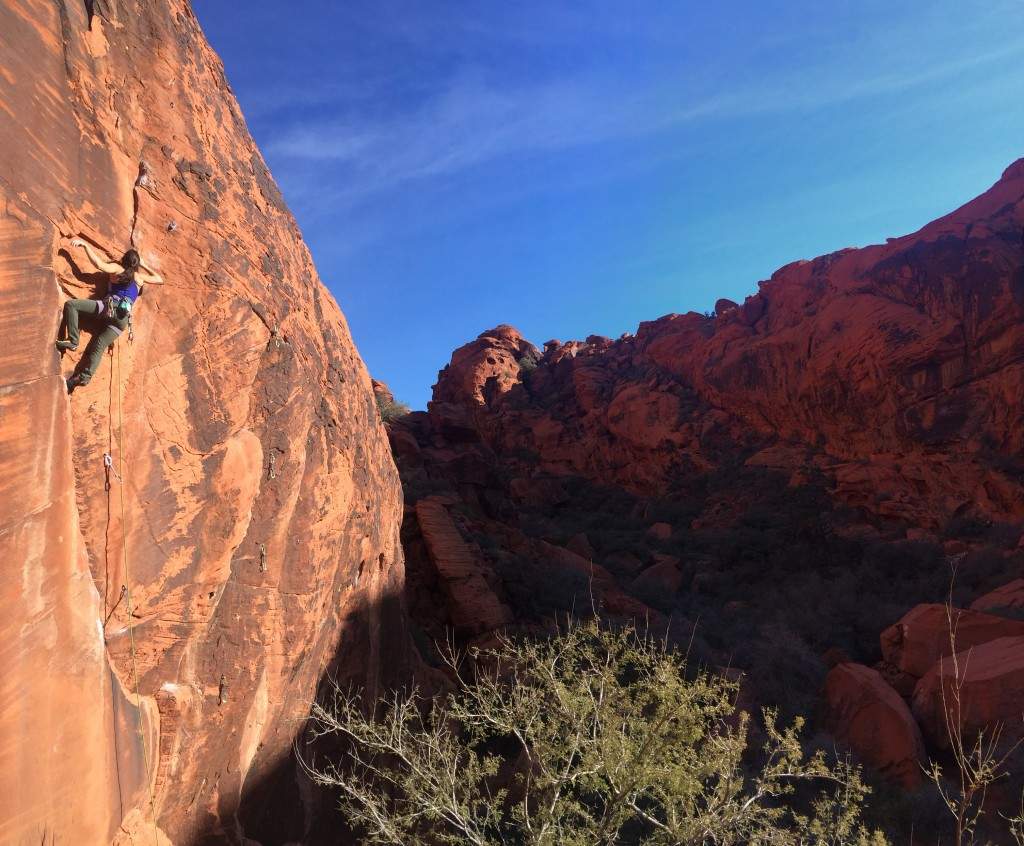
When motivation wanes browse your climbing trip photos and guidebooks.
Now that you’ve got all my best tips on how to get the most out of an online coach, it’s time to find a trainer. I’ve compiled a shortlist of some of the trainers that I’ve heard about, but it’s certainly not exhaustive. Each coach and service have different experiences, areas of expertise, and what I’m calling “training theories” that shape the way they build programs for their athletes. Make sure you do some research or ask around to find a trainer whose theory matches your own.
TrainingBeta with Dan Mirsky
Dan is a long-time contributor to the TrainingBeta website. On the website, he discusses some of his training philosophy: the importance of training weaknesses, the need for efficient and specific training rather than high volume training, and the importance of confidence in climbing and getting your mental game in shape.
Lattice Training Tom Randall and Ollie Torr
This duo is based out of Great Britain. You might know Tom Randall from Wide Boyz in Reel Rock 7. He’s climbed 5.14 offwidth, trad, and sport and has been coaching elite level climbers (including IFSC podium climbers) for the past several years. They’ve created a unique systematic assessment that they conduct prior to beginning training to qualitatively assess different aspects of your climbing from finger strength to anaerobic capacity.
Galina Parfenov Training
Famous for her YouTube video “Training for Rock Climbing”, Galina recently started offering online personal training (and in-person training for Connecticut/East Coast climbers). She’s one of only TWO female climbing coaches that I ran across in my research!
Climbing Sensei
Justin Sjong (the former coach of Team of 2) is now running the website Climbing Sensei. He has 20+ years of experience as an elite climber and coach. He’s coached the likes of Daniel Woods and Emily Harrington. He strongly emphasizes training the mental aspect of climbing in his plans.
TrainingBeta with Kris Peters
Kris Peters (the former trainer of Team of 2) is now offering online coaching through the website TrainingBeta. He’s worked with Sasha Digiulian, Nina Williams, and Matty Hong. Kris appears to offer many of the same things as Justin (including Skype sessions and video analyses). Kris has 2 options for training programs, each lasting 5 weeks.
Have you tried an online climbing coach? Tell us how it went in the comments below, and best of luck in all your training adventures!
Climb on!
Sarah

